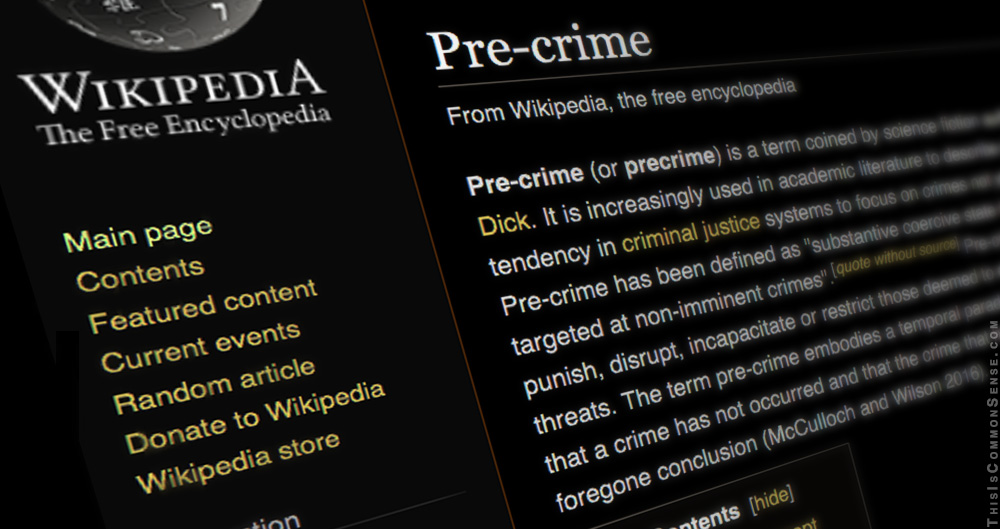Whether “predictive policing” is good or bad depends on what it means.
If it means using crime patterns to determine which neighborhoods should get more police patrols, that’s reasonable enough.
But what if it means assuming that certain individuals may commit a crime if left to themselves? And then “preventatively” harassing them?
The Institute for Justice has just won an important victory against predictive policing as practiced by the sheriff’s office of Pasco County, Florida.
The office’s idea was to predict which residents were most likely to commit future crimes. Algorithms — or what IJ attorney Rob Johnson calls a “glorified Excel sheet” — were supposed to perform a function comparable to that of “precogs,” the psychics in the movie Minority Report, who envision future crimes.
To counter the precrime, the sheriff’s office made frequent visits to the homes and haunts of pre-guilty individuals to interrogate them and their families, “sometimes multiple times a week.” Families who objected would get slapped with citations for bogus code violations.
All that’s over with now, we hope.
In response to IJ’s litigation, the sheriff’s office has admitted violating the due process rights and Fourth Amendment rights of the people they harassed, and it has dropped the program.
Scott Bullock observes that if the policy of harassing people based solely on guesses about what they or associates “might” do had been allowed to stand, such a program could easily have spread to other locales.
This is much less likely now.
This is Common Sense. I’m Paul Jacob.
Illustration created with Flux and Firefly
See all recent commentary
(simplified and organized)
See recent popular posts


